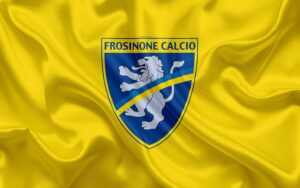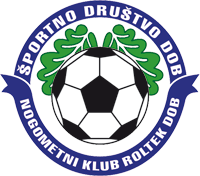
Dinamo Zagreb Club: Croatia’s Hidden Football Powerhouse
Hidden in the heart of Croatia, Dinamo Zagreb is a football titan that’s often underrated. Since 1945, the club has dominated domestically and impressed in Europe, all while nurturing world-class talent. Visit my site: 188BET to explore more about teams shaping the game. With a passionate fanbase and a rich legacy, Dinamo Zagreb continues to define Croatian football and influence the sport beyond its borders.
Key Players in Dinamo Zagreb Club’s History
Over its storied history, the Dinamo Zagreb Club has been home to many legendary players who have left an indelible mark on the club and Croatian football.
Icons of the Past
At the forefront of Dinamo’s illustrious history are players who not only excelled on the pitch but also embodied the spirit of the club.
Legends like Zvonimir Boban and Davor Šuker rose through the ranks at Dinamo, ultimately representing their country on the world stage. These players played pivotal roles in shaping the club’s identity and achieving key milestones.
Boban, known for his leadership and technical prowess, captained the Croatian national team during the 1998 FIFA World Cup, where Croatia finished third. His tenure at Dinamo set the stage for future generations, inspiring young athletes across the nation.
Modern-Day Stars
In recent years, the Dinamo Zagreb Club has continued to attract and develop top talent, ensuring that the legacy continues.
Players such as Luka Modrić and Mateo Kovačić made their mark at Dinamo before embarking on successful careers abroad. Modrić, now a household name and Ballon d’Or winner, credits his time at Dinamo for laying the foundation for his exceptional career.
Kovačić’s dynamic playing style and versatility have made him a sought-after midfielder in the top European leagues. Their journeys illustrate the importance of Dinamo in fostering talent capable of competing at the highest levels.
Impact of Foreign Signings
In addition to developing homegrown talent, Dinamo Zagreb has strategically signed foreign players who have enhanced the team’s competitiveness.
These signings have often proved crucial in pivotal matches, showcasing the club’s ability to attract skilled individuals from around the world. For instance, players like Arijan Ademi and Dani Olmo have contributed significantly to the club’s success, balancing the roster with diverse skills and experiences.
The combination of local talent and international players has solidified Dinamo’s standing, creating a well-rounded squad capable of facing any opponent.
Dinamo Zagreb Club’s Influence on Croatian Football
The Dinamo Zagreb Club holds a unique position in Croatian football, shaping the national landscape and influencing the growth of the sport in the country.
Catalysts for National Pride
Since its inception, Dinamo Zagreb has served as a catalyst for national pride and unity, particularly during turbulent times.
The club’s success and representation in European competitions have fostered a sense of identity among Croatians, uniting fans across different regions. The club’s victories, especially during the 1990s, coincided with Croatia’s fight for independence, embedding Dinamo in the hearts of its supporters.
Their role during these critical moments has helped define the cultural significance of football in Croatia, elevating the sport to a national pastime.
Promoting Local Talent
With the establishment of its youth academy, the Dinamo Zagreb Club has not only focused on its own success but has also played a vital role in promoting local talent across the country.
The club’s emphasis on developing young players has inspired numerous smaller clubs and academies to adopt similar approaches, contributing to the overall improvement of Croatian football standards. As a result, Croatian football is now recognized for producing world-class players who excel on international platforms.
Collaboration with the National Team
Dinamo Zagreb’s influence extends to the Croatian national team, where the club contributes a significant number of players.
The synergy between the club and national team strengthens the bond, creating familiarity among players who often share the pitch together. This collaboration has been instrumental in the national team’s achievements, including reaching the final of the 2018 FIFA World Cup.
By providing a steady stream of talented players, the Dinamo Zagreb Club has cemented its role as a pillar of Croatian football, fostering a competitive environment that benefits both the club and the national team.
Stadium and Facilities of Dinamo Zagreb Club
The home of the Dinamo Zagreb Club, Maksimir Stadium, stands as a symbol of the club’s heritage and its connection to the community.
Historical Significance of Maksimir Stadium
Maksimir Stadium, opened in 1912, has undergone numerous renovations throughout the years to keep pace with modern standards.
As the oldest stadium in Croatia, it holds a wealth of history, having witnessed countless memorable matches and significant events in Croatian football. The stadium’s capacity of over 35,000 offers fans an exhilarating atmosphere during match days, accentuating the passion that surrounds Dinamo Zagreb.
The venue has hosted international fixtures, including UEFA tournaments, cementing its status as a central hub for Croatian football.
Modernization Efforts
In recent years, the Dinamo Zagreb Club has invested substantially in upgrading facilities to ensure players have access to state-of-the-art training environments.
These enhancements include advanced fitness centers, rehabilitation facilities, and tactical analysis rooms, all designed to optimize player performance. Such investments reflect the club’s commitment to maintaining its competitive edge in both domestic and international arenas.
The integration of technology into training regimens has allowed coaches and players to analyze performances more effectively, driving continuous improvement.
Community Engagement
Beyond the pitch, the Dinamo Zagreb Club plays a pivotal role in engaging with the local community.
Initiatives such as youth camps and outreach programs aim to inspire the next generation of footballers while fostering a sense of connection between the club and its supporters. These efforts demonstrate the club’s understanding of its social responsibility and its commitment to nurturing talent from within the community.
Through various engagement strategies, Dinamo continues to cultivate loyalty among its fanbase, reinforcing its position as more than just a football club—it is a cultural institution.





